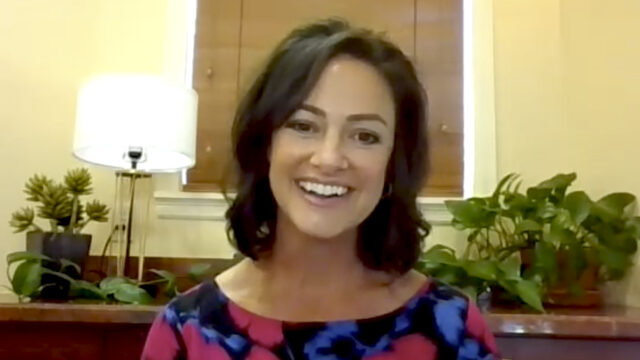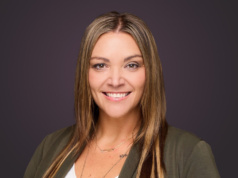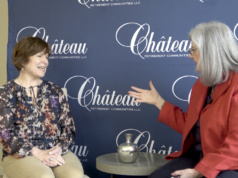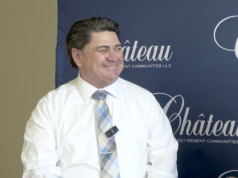Suzanne: And welcome everyone to Answers for Elders Radio Network, here with Era Living’s Regional Director of Sales and Marketing, the wonderful Karla Clark, who I am so thrilled to work with. And we’re gonna provide an amazing topic for our listeners today because I think if you’re thinking about senior living or you’re kind of wanting to know even what the first step should be, what should I expect? What’s the process like? All of those things? I think a lot of times questions can hold us back because we don’t want to pick up the phone. We don’t want to feel stressed out. We don’t wanna be unprepared for the questions they’re going to be asked. So, Karla and I, we’re gonna have a conversation today about what that process is, how easy it is and really just talking about the whole process of selecting a right community for you. And so Karla Clark, welcome to Answers For Elders Radio Network.
Karla Clark: Thank you, Suzanne. It’s a pleasure to be here.
Suzanne: You know, I love this topic because I talk to families a lot and they go, well, we’ve thought about senior living, but I don’t even know — we’re home, but I don’t know, mom’s not safe. There, there’s just all these questions about this, unknown factors. And I think sometimes the fear of the unknown can be really debilitating. What have you found, Karla?
Karla Clark: That’s absolutely true. It usually takes a lot of courage for somebody to pick up the phone or to walk into one of our communities. And so my hope for this conversation that we have today is to alleviate some of those fears that people have or maybe some stress of actually taking that first step and calling us or coming in and visiting.
Suzanne: Yeah. And I think it’s so amazing that you say that, and I go back to my own journey. My first exposure to touring senior living communities was when I felt enormous pressure, because my mother was in a rehab facility. All of a sudden they said, we will release her to “assisted living.” That’s the only way she could get out, or she’d have to stay on private pay, because insurance had run out. And there’s so many families, I think, that face this similar circumstance, and yet they feel this an enormous weight, like I don’t even know what to ask. I don’t even know what to look for. And I think that’s one of the things that we’re gonna talk about. So I guess when they call you guys, what can they expect when they pick up the phone, Karla?
Karla Clark: I’m so glad you asked. First of all, they should expect someone to be warm and welcoming, and help guide them, to be that trusted advisor, and it’s important for our teams … they’re probably going to be connected with a community relations team member, and that person is going to be asking some questions of the family member, or maybe the person considering making a move themselves. And these questions are designed to get to know that person because everybody has a specific unique journey, and our team members have helped hundreds, thousands of family members go through this, but it’s different for everybody, and we don’t know what has happened at the other end of the line that has caused them to reach out to us. And so, by asking these questions, we can find out important things like what’s not working out so well right now, what are you hoping to gain by making a move to a retirement community, and what’s gonna be most important to you, because that is going to mean something different for everybody. And so it’s less about our story and what we can offer, and it’s more about their story, and what we can help provide a solution for. And only by asking questions can we find out if we’re going to be the right fit for them, right? We’re not going to be the right fit for everybody. But by having that conversation and that dialogue and asking good questions, and building that relationship together, then we can perhaps invite them in for that next step, guide them through this journey or give them other recommendations that might meet their needs better.
Suzanne: And you know, Karla, what you’re saying is so valuable because I just go back to my first experience. I didn’t know, I felt like I was a deer in the headlights, because this was a whole new world to me. And yet I don’t consider myself a non-intelligent person. I consider myself being fairly intelligent, but this whole world can be daunting, and especially making this kind of an overwhelming situation. But one of the things you said, which really I want to get to, is that you should expect a warm welcome. And that is usually from a community relations advisor. Could you share a little bit about what their role is?
Karla Clark: Oh, gosh. So many roles, they wear a lot of different hats. But it is that trusted advisor and that person that they can rely on to answer questions truthfully, to get to know them to really want to help guide them through this process and journey and they are there to help them, ask the right questions because they’ve been through this before, they have the insight of what has worked or hasn’t worked for others, and by talking through certain topics and conversations, whether that has to do with finances or their needs, their hobbies and their interests as our residents are so engaged, and we wanna see that liveliness and that engagement. And so that person is somebody that they can pick up the phone, or come and talk to ask questions. And we always think it’s best if it’s a good fit from that first conversation is we’re gonna invite them into the community, so they can see it, touch it, taste it, feel it, because there’s nothing like actually just walking in the community and describing that feeling that you get.
Suzanne: It’s so interesting when you’re saying that because when I was looking with my mom, I ended up… the main reason why I picked this community I did wasn’t from what the furniture was like, it wasn’t from how glamorous the community was. What it was, was the heart, it was the people that showed they cared. But the other thing is, I saw residents laughing and having fun as we arrived, when they were all just getting ready to go in for lunch. And you see those kinds of dynamics, and those speak a thousand words. And a community relations director, they’re kind of that ambassador to that community. I mean, wouldn’t you say that?
Karla Clark: That’s probably true. They’re out in the community, they’re visiting senior centers, things like that, an ambassador is a great word to describe their role. They show community, all of our team members. I mean, that’s one of the best things, being able to make those introductions to the people who are going to be enhancing the lives of the people who are moving in there, and help to support them. Whether it’s our amazing chefs, or our dining services directors, our nurses, our executive directors, all the team members who have been there, as you know, 10, 15, 20 plus years.
Suzanne: Yes, absolutely. Which is so incredible. So, let’s say somebody selects your community, what’s a typical path and process that they experience?
Karla Clark: Oh, gosh. Well, each one is a little bit unique, but I’ll try to describe kind of what is most common after that conversation. And we find out that we sound like we could be a wonderful place for their next chapter, next is inviting them into the community. And during that visit, it’s going to be very personalized for what’s important to them.
And I can guarantee that they are going to meet some amazing people. It’s so important to meet the community directors, the executive director, other team members. We’re gonna make some introductions to some other residents. It’s amazing how the connections that you find with people who go to the same church or the same organizations or retired from the same industries. And so we make those connections, because that’s what’s important, and then we’ll, of course, show them some apartments. But it’s important to know that our team members know that this is a journey, and a process, and everybody’s at a different stage, and there’s not going to be that pressure to select an apartment during your first visit. Now, if somebody finds an apartment that they love, we’re not gonna stop them from moving forward because it’s rare timing.
But it’s a great way for them to visit the community, and get to know it, and we encourage people to come back and visit multiple times, because it’s a snapshot. You’re there one time, during this one time. Come back, and have a lunch or dinner. We really like to encourage or pair people with other residents. Or come back and participate in one of our events — if somebody likes to play bridge with the bridge group, or be in an exercise class, or yoga, or Tai Chi, or a happy hour.
And then also we have a lot of different lectures and presentations that are specific to helping people make a good decision and guide them through the process. And those are very popular. Some of our most popular ones are our resident panel, and that’s where we invite usually 5 to 6 residents, and they share their story and what they went through. It’s so popular because the people who are considering making a move, they want to hear that from the residents. Our downsizing events are very popular. It’s all designed to help somebody make a good decision.
Suzanne: And I think too, it’s important for the adult children to feel comfortable as well, to accompany their loved one, or a spouse, or things like that. We just spoke to [resident] Said [Haitt] earlier, it’s a major shift in your life. It’s a new chapter, and I think it can be amazing, positive, future, moving forward.
Karla Clark: And we do want other family members, or maybe friends, somebody who they rely on, and trust to make decisions like this, to be a part of that. And that’s why multiple visits to the community is important too, because they can buy in, they can make the selection as far as like, OK, this is it, I feel good. And it’s amazing, oftentimes when you’re with people and they revisit this apartment that they love, you can just see it on their face, lighten up. It’s almost a sense of relief, too. Like, oh my gosh, I’m moving forward out of the status quo. I’m looking forward to this. It’s a very hopeful, positive moment and we love it.
Suzanne: And you know, it’s so true and just feeling not rushed, not pushed. Just allow the process to unfold. And when the timing is right. It’s right. And you could be looking a year in advance and that’s OK. And that’s the beauty of this whole program.
Karla Clark: That’s true. And that’s very common for people to say, “oh, I’m about a year out.” and then they come and visit, and they see everything that they’re missing out on.
Suzanne: And they go, “I could move this up a little bit sooner.”
Karla Clark: “Why am I waiting? I’m missing out on all this. Somebody could be cooking me these delicious meals, and making new friends.” So that’s really what we want to see too.
Suzanne: Exactly. That’s the important thing, and I love that your staff has been there for so long, you have one of the longest tenure staff that I’ve ever talked to, and that speaks volumes for the culture that you have there, and just the feeling every day when they wake up, they’re making a difference, and that they’re getting fulfilled in the process. So, Karla, thank you so much for sharing all about your process.
Karla Clark: Thank you. And I hope that helps others and we, we love doing what we do.
Suzanne: Well, I have no doubt it will. So, thanks again and we’re gonna be back right after this.














